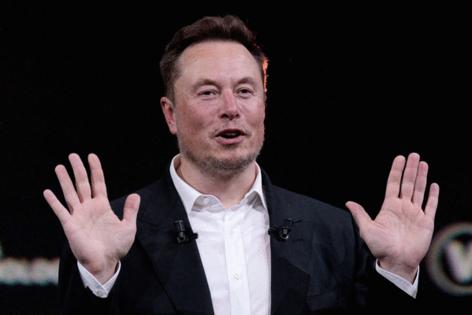Ex-OpenAI staff oppose startup overhaul in Musk legal fight
Published in Science & Technology News
A dozen former OpenAI employees are objecting to the startup’s plan to restructure as a for-profit as Elon Musk wages a high-stakes legal challenge to the overhaul.
In the latest turn in a showdown between the world’s richest person and one of the most valuable startups, the data scientists and technicians argued in a court filing Friday for keeping a controlling stake of OpenAI in its nonprofit arm.
“If the OpenAI nonprofit agreed to a change in the OpenAI corporate structure which took away its controlling role, that would fundamentally violate its mission,” according to the filing. The ex-employees, all of whom worked for the company between 2018 and 2024, are represented by Lawrence Lessig, the Harvard law professor and political activist.
In the court fight Musk launched last year, he accused OpenAI Chief Executive Officer Sam Altman of abandoning the startup’s founding purpose as a charity when it accepted billions of dollars in backing from Microsoft Corp. starting in 2019. Musk had worked with Altman to help start OpenAI in 2015 and left its board in 2018. He launched a rival generative artificial intelligence startup, xAI, in 2023.
OpenAI has argued that the new structure would still further its charitable mission because the nonprofit would hold significant stake in the future for-profit, and the for-profit would be a public benefit corporation, that has a duty not just to financial shareholders but to the public. OpenAI has said that it needs to undergo the restructuring in part to attract investors and fund its mission.
“Our board has been very clear: our nonprofit isn’t going anywhere and our mission will remain the same,” OpenAI said in a statement. “We’re turning our existing for-profit arm into a Public Benefit Corporation — the same structure as other AI labs like Anthropic — where some of these former employees now work — and xAI.”
The former employees’ filing highlights OpenAI’s charter, published in 2018, which states the startup “is not organized for the private gain of any person” and would work toward ensuring AI use is safe. Some of these employees have previously raised concerns about OpenAI’s ability to balance safety versus commercializing its technology.
Marc Toberoff, an attorney for Musk, said the friend-of-the-court filing by the former employees “confirms what we already knew.”
“Altman presented OpenAI’s charitable mission as binding and used it as prop to seduce and exploit the contributions of Musk and top AI talent,” Toberoff said in a statement.
Lessig declined to comment.
OpenAI has faced other criticism as it seeks regulatory approval to restructure. A youth-led nonprofit group advocating for AI safety, Encode, said in a December court filing it shares Musk’s concerns about OpenAI becoming a for-profit enterprise. Meta Platforms Inc. asked California Attorney General Rob Bonta to pause the restructuring “to protect investors and consumers alike.”
A federal judge last month rejected Musk’s request to temporarily halt the ChatGPT maker’s restructuring while the legal fight plays out. Instead, she has set a trial for March.
OpenAI this week filed a countersuit against Musk, accusing the serial entrepreneur of waging a “relentless” campaign for more than a year to damage the startup and asked for a court to order him to stop.
©2025 Bloomberg L.P. Visit bloomberg.com. Distributed by Tribune Content Agency, LLC.







Comments